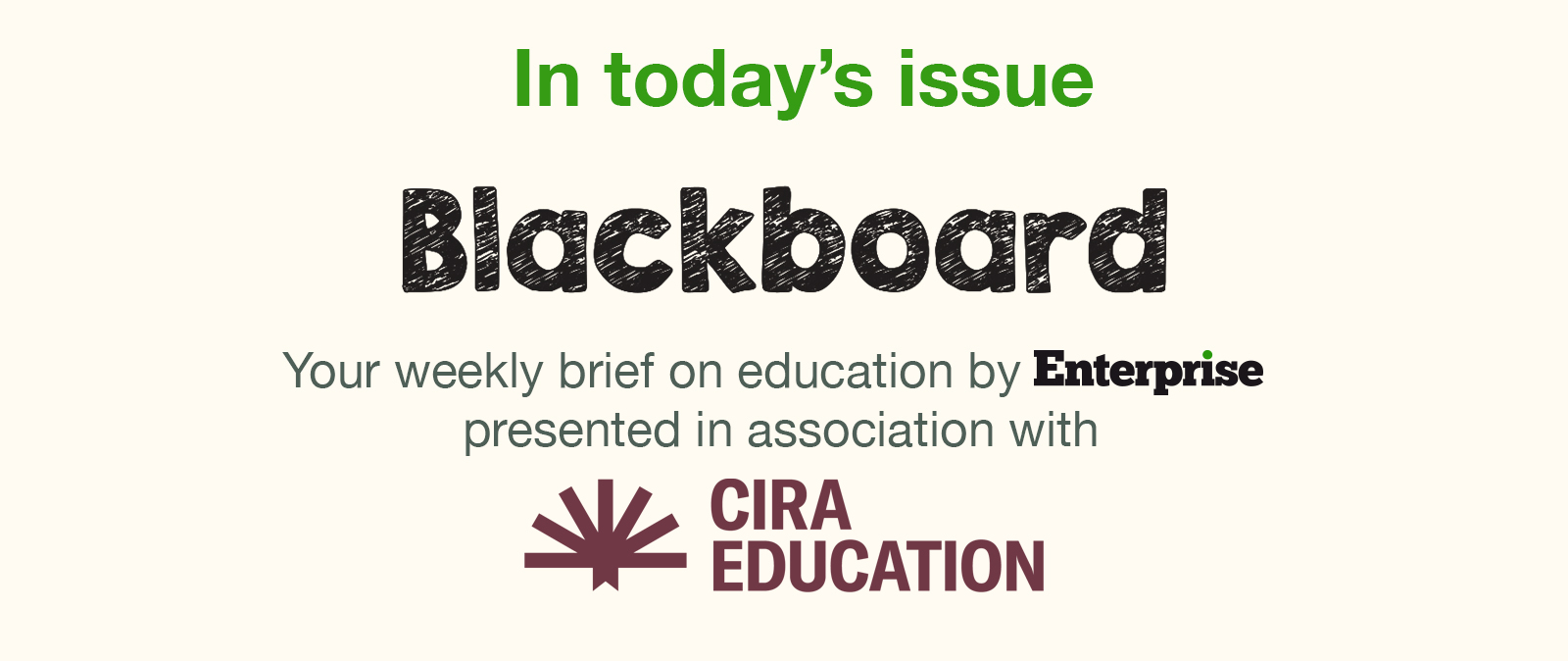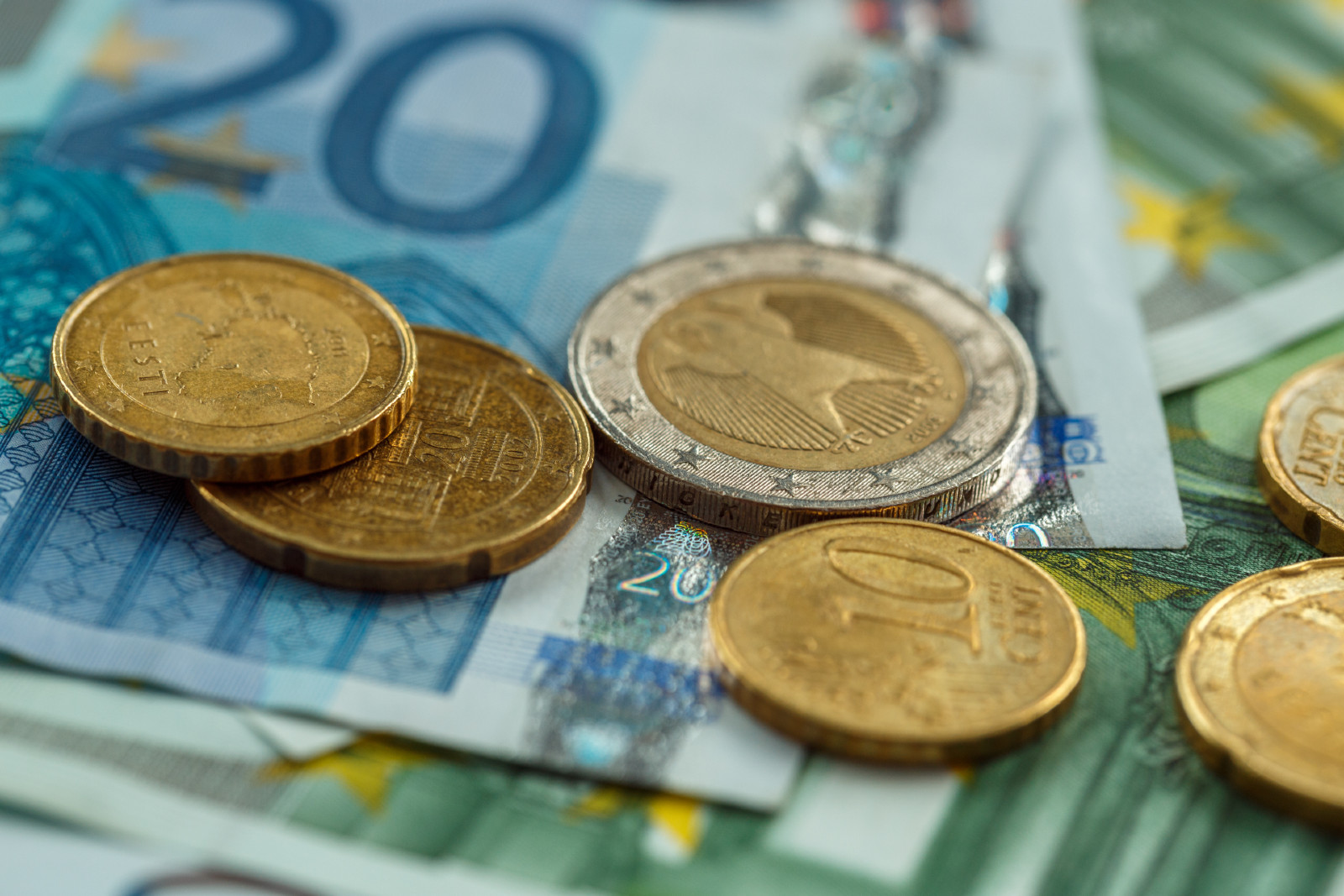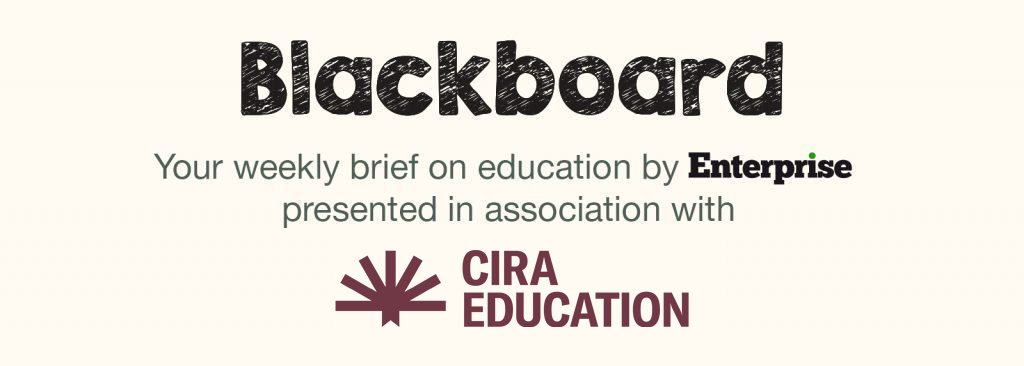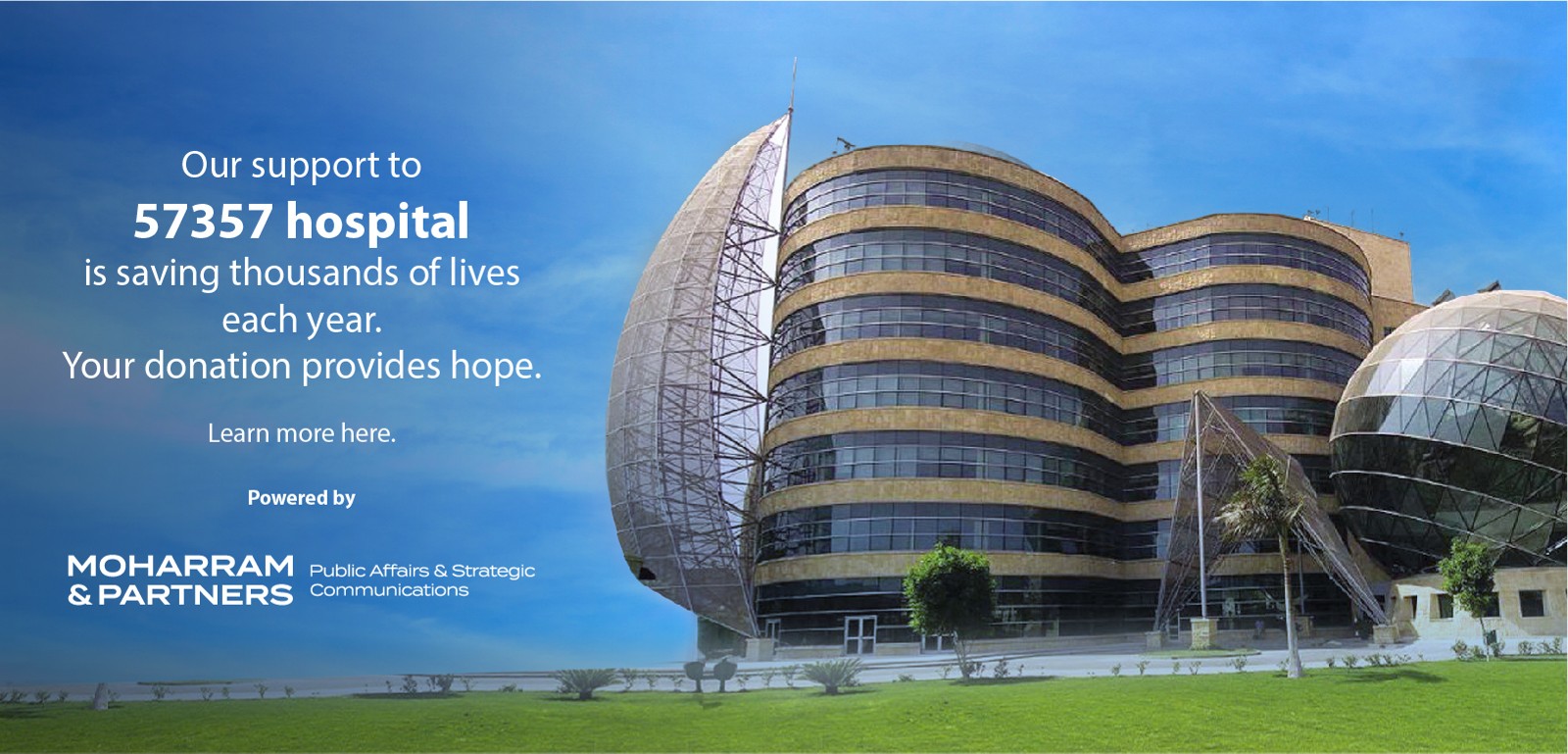- CBE ends the year with a jumbo 300 bps rate hike. (Economy)
- Gov’t is getting a move on with clearing import backlogs. (What We’re Tracking Today)
- Our first look at the FY 2023-2024 budget. (Budget Watch)
- B Investments exits TotalEnergies Egypt. (M&A Watch)
- Egypt secures USD 500 mn from the World Bank to support Takaful and Karama. (Debt Watch)
- Cabinet gives initial approval to freight transport privatization. (Cabinet Watch)
- 2022 in Review: A trifecta of headwinds.
- 2022 in Review: One helluva year for debt markets.
- Education in 2022: Macroeconomic + investment trends. (Blackboard)

Monday, 26 December 2022
AM — An end to import backlogs in sight?
TL;DR
WHAT WE’RE TRACKING TODAY

Good morning, ladies and gents, and welcome to the last workweek of 2022. As is our custom around this time of year, we’re taking stock of the past 12 months with our usual Year in Review series.
We begin this year’s series with a look back at the big stories that ended up shaping much of 2022: Russia’s war in Ukraine, which set off a massive ripple effect on the global economy and had serious knock-on effects here at home. For Egypt specifically, we grappled with a difficult combination of upended global commodity markets, soaring inflation, and an FX crunch that ultimately led to not one, but two devaluations of the currency this year.
Are import backlogs going to be cleared soon? Setting a plan to release all the goods currently stuck at our ports was the main focus of a meeting Prime Minister Moustafa Madbouly headed yesterday, along with cabinet members and representatives from the Central Bank of Egypt, according to a statement. Authorities are prioritizing commodities first, considering Ramadan is fast approaching, followed by goods required for manufacturing, including input materials, the statement says. Some USD 300 mn worth of food commodities — vegetable oils, meats, and legumes — were released from our backlogged ports last week, putting the total value of goods released since the beginning of December at USD 5 bn, cabinet spokesperson Nader Saad said in a statement. There are currently USD 9.5 bn worth of goods stuck in our ports that the government is working to release.
The CBE is cracking down on the abuse of credit and debit cards to secure FX, instructing banks in a circular (pdf) to notify it of any misuse of cards. The CBE noticed a spike in people using their debit and credit cards to secure FX from abroad despite having never left the country, amid foreign-currency purchase and withdrawal limits.
But it’s giving out some exceptions for FX withdrawal limits: The Central Bank of Egypt has reportedly requested banks to waive the newly-introduced limits on hard currency withdrawals for Egyptians abroad who need the money for medical or educational purposes, last night’s talk show hosts reported, citing a banking source. The exemptions also apply to those who traveled before the withdrawal limit announcement on 22 December and those with FX-denominated bank accounts. Al Hayah Al Youm (watch, runtime: 2:13), Ala Mas’ouleety (watch, runtime: 6:30) and Masaa DMC (watch, runtime: 8:18) all had coverage.
|
PSA #1- The Central Bank of Egypt is extending its tourism support initiative until March 2023, it said in a circular (pdf) yesterday. Hotels and tour operators can request extensions on their loan repayments during those three months, the circular said.
REMEMBER- Prime Minister Moustafa Madbouly issued a decree last month that will see the CBE stop providing funding for subsidized loans and pass the responsibility to the housing, finance and tourism ministries. The central bank currently backs soft loans for key areas of the economy, including construction, industry, agriculture and tourism, as well as mortgages and some cars. It has allocated hundreds of bns of EGP to financing borrowers in these sectors with loans at an interest rate of 8%.
PSA #2- We’re getting another year-long waiver on fees for EGP e-payments and online transfers, according to a CBE circular (pdf). The exemption period will expire on 31 December 2023. The fee waivers were introduced during the first wave of the pandemic in March 2020 and have been periodically extended since, most recently in July.
PSA #3- Tourists will soon have to pay for their train tickets in foreign currency, Transport Minister Kamel El Wazir told El Hekaya (watch, runtime: 44:33).
CORRECTION #1- A story we picked up from the domestic press in Thursday’s edition of EnterpriseAM incorrectly reported that one of the three consortiums qualified to bid on the Alexandria metro project is an alliance of Arab Contractors and France’s Alstom. The consortium is led by our friends at Hassan Allam, and Arab Contractors is not part of the consortium, an executive at Hassan Allam confirmed to Enterprise. The story has been amended on our web edition.
CORRECTION #2- In last week’s coverage of Pachin’s awaited response to the takeover offer from Dubai’s National Paints Holdings (NPH), we misreported Pachin’s counsel in the proposed transaction. Pachin’s counsel on the transaction was Shalakany Law Office. We have since updated the story on our website.

*** It’s Blackboard day: We have our weekly look at the business of education in Egypt, from pre-K through the highest reaches of higher ed.
In today’s issue: 2022 brought in a wave of cost pressures for schools and parents, giving up to the rise of buy-now-pay-later loans and a boom in pre-K investing. We continue to recap some of the big trends and developments in the sector this year with our year in review.
31 December: Disco Mania, a new commercial concept at Somabay Theater:
Somabay always ends the year in the absolute best way possible. Our new year’s weekend is bound to be explosive this year. We’ve come up with some of your favorite concepts over the past years and we’re back for a whole new commercial concept this New Year’s Eve, boasting a massive commercial line-up on 31 December with a set from local tastemaker DJUNKIE, who'll be followed by shows from Aziza and The Girly Show. For more information, kindly call 16390.
ECONOMY
Ending the year on a big note

CBE drives home jumbo 300 bps rate hike: The Central Bank of Egypt raised interest rates by 300 bps on Thursday — its biggest rate hike since 2016, before floating the EGP — as it looks to clamp down on rising inflationary pressures. The Monetary Policy Committee (MPC) hiked the overnight deposit rate to 16.25%, the overnight lending rate to 17.25%, while the main operation and disc. rates were raised to 16.75%, it said in a statement (pdf).
It’s a bigger hike than expected: Analysts we surveyed last week had penciled in a 200 bps rate hike. The CBE had raised rates by 200 bps before October’s devaluation — ahead of the IMF’s USD 3 bn bailout. The latest bump follows 500 bps worth of rate hikes this year, bringing interest rates 800 bps above the beginning of the year.
It all comes down to rising inflation: Inflation hit a five-year high of 18.7% last month as the CBE’s decision to float the EGP affected food and beverage prices. The MPC’s statement judges higher inflation rates and a recent hike in demand side pressures as accelerating faster than the economy’s capacity and fast growth of money supply. “The objective of raising policy rates is to anchor inflation expectations and contain demand side pressures, higher broad money growth and second round effects of supply shocks,” the statement added. The MPC also cites the uncertain outlook for commodity prices, the looming global economic slowdown and the impacts of the Russia-Ukraine war on global supply chains as further risks for inflation.
And the CBE has targets: The CBE is sticking with its current inflation target of 7% (± 2%) through to 4Q 2024, but wants to bring inflation down to 5% (± 2 percentage points) by 4Q 2026. The CBE is expecting 4Q 2022 to remain above the inflation target, the MPC said in the statement.
But the jumbo hike could also signal a further devaluation, analysts say: “I think Egypt will implement a further depreciation before 1 January,” Reuters quotes Arqaam Capital analyst Jaap Meijer as saying, adding that a “rate hike will make this easier now to ensure some capital inflows once the devaluation is implemented.” Goldman Sachs’ Farouk Soussa says a further devaluation will depend on the CBE’s ability to build a liquidity buffer that can clear the backlog of FX, Bloomberg reports. “The currency is still very fragile,” Meijer said on Bloomberg TV. “There’s significant room for devaluation,” he added.
BUDGET WATCH
Our first look at the FY2023-2024 budget

FinMin pencils in 5.5% growth for FY2023-2024: Egypt is targeting a GDP growth of 5.5% in its draft budget for the next fiscal year, Finance Minister Mohamed Maait said in a statement. The government is also targeting a primary surplus of 2% for the upcoming fiscal year and a 5% budget deficit in the medium term. The target comes amid “exceptional circumstances” caused by a spike in the prices of goods and services, continued disruption of supply chains and a rising cost of financing, the statement reads.
Other targets: The ministry is hoping to bring down the debt-to-GDP ratio to below 80% by the end of 2027, revising the figure upward from the 72% target announced in October during the Egypt Economic Conference.
Where do we stand this fiscal year? The Planning Ministry recently revised downwards our economic growth expectation for FY2022-2023 to around 5% down from the 5.5% the Finance Ministry anticipated in the draft budget. The World Bank is expecting our economy to grow 4.5%, while the IMF and Fitch are both predicting a 4.4% growth tempered by inflation, a slowdown in public investments and a belated recovery from the tourism sector.
On the agenda for FY2023-2024: The draft budget prioritizes development, expanding social protection measures, overcoming the spillover effects from global economic challenges, and reducing the impact of the global inflationary wave on citizens, Maait said. The government also wants to expand the umbrella of the Decent Life (Hayah Karima) initiative to include the 60% of Egyptians who live in rural areas.
The news got attention internationally: Reuters.
M&A WATCH
B Investments exits TotalEnergies Egypt

B Investments sells entire stake in TotalEnergies Egypt: BPE Partners’ B Investments has agreed to sell its entire 6.38% stake in TotalEnergies Egypt to TotalEnergies Marketing Afrique (TEMA) for USD 27.6 mn, the company said in a statement (pdf). This came alongside a separate BPE Partners-backed vehicle’s exit of its 9% stake to TEMA for USD 39 mn, handing TEMA the two shareholders’ combined 15.38% stake in TotalEnergies, a source close to the matter told Enterprise.
Exiting shareholders could get more: The firm could also get an additional USD 2.2 mn in the transaction in the event of the closure of Adnoc’s acquisition of 50% of TotalEnergies from TEMA, B Investments IR head Omar El Labban told Enterprise. The other vehicle would also get an additional USD 3.2 mn if the acquisition goes through, our source said. The transaction is subject to regulatory approvals and is expected to close in 1Q 2023.
Refresher: Adnoc’s distribution arm had agreed in July to acquire 50% of TotalEnergies Egypt for up to USD 203 mn. TEMA — which holds the 84.6% majority stake — would sell 34.6% to Adnoc, which along with B Investments’ 6.38% stake and the affiliated vehicle’s 9% would result in a 50-50 ownership between the two companies. B Investments ultimately favored an exit, waiving its right of first refusal instead of pre-empting Adnoc’s bid to buy the 34.6% stake TEMA had on offer. The two had been in negotiations over the bid over the past few months.
What they said: “We’re very glad we’ve concluded our second exit for the year after our exit from Giza Systems, which proves the value we are able to create for our assets and our shareholders,” El Labban told us.
IN OTHER M&A NEWS-
Oriental Weavers welcomes new shareholder … kind of: Yasmine and Farida Khamis, the two daughters of the late Oriental Weavers chairman Mohamed Khamis, have transferred their combined 24.61% stake in the company to FYK Limited, a newly-established company also owned by the two sisters. The EGP 1.38 bn transaction is part of a restructuring of their investments, according to three separate EGX disclosures (here, here, and here — pdfs).
Keeping it in the family: FYK Limited is fully owned by the two sisters, the company’s IR head told Al Borsa.
DEBT WATCH
Egypt secures USD 500 mn from the World Bank to support Takaful and Karama

Egypt’s Takaful and Karama program gets a boost: The World Bank has agreed to a USD 500 mn loan in development financing to expand and strengthen the Takaful and Karama program amid soaring food and energy inflation, according to an International Cooperation Ministry statement and a WB statement (pdf). This is the third round of financing from the multilateral lender for the social safety program, following a USD 400 mn loan in 2015 and another USD 500 mn loan in 2019.
Where’s the money going? The loan will help expand the program’s coverage and enroll more families into economic inclusion to mitigate price shocks, the World Bank statement reads, without disclosing specific targets. The first two loans helped enroll 3.7 families into the program — amounting to 12.8 mn citizens, according to the ministry statement.
Background: The program was launched in 2015 to provide income support to the country’s most vulnerable citizens via cash transfers. The Madbouly government rolled out new emergency social protection measures worth EGP 11 bn in July and another set of measures in October to mitigate the impact of the economic crisis on the poorest. These measures will see an extra 1 million families brought into the program bringing the total number of beneficiaries to 20 mn.
It’s also a priority for the IMF: The IFM newly-approved USD 3 bn facility aims to expand the coverage of the cash transfer program Takaful and Karama by an additional 5 mn families.
CABINET WATCH
Cabinet gives initial approval to freight transport privatization + makes some shop owners’ lives easier after Public Shops Law controversy

Are we one step closer to privatizing Egypt’s freight transport sector? Cabinet approved in principle the decision to grant a consortium of private companies the operations and management of freight transport in a step to partially privatize the sector, according to a cabinet statement. The Transport Ministry will launch a tender to award the contracts, but there is no disclosed timeline for the launch.
Refresher: A key component of Egypt’s plan to overhaul its railway system is turning to the private sector, which has been in the works since 2018 with the passing of amendments to the Railway Act that allow private sector participation in developing, managing, and operating railway projects. The Transport Ministry then began procedures to establish private-sector companies to manage individual railways, but these plans largely fell by the wayside until last year, when the government was reportedly looking at plans to establish three JVs with foreign rail companies to manage Egypt’s railway network.
ALSO- Cabinet has moved to exempt 48 commercial activities from having to obtain security clearances before going legit, after it approved amendments to a ministerial decree from earlier this month during its meeting on Thursday. The Local Development Ministry had previously issued rules requiring 83 different commercial activities to obtain sign-off from security directorates before receiving official commercial licenses per the newly introduced Public Shops Law, allowing all shops a one year grace period to apply for the licenses to avoid fines and possible jail terms.
Who still needs approval? The 35 activities still requiring security approvals include car dealerships, hotels, arms and ammunition shops, and military uniform shops, Mohamed Al Fayoumi, spokesperson of the supreme committee for licensing public shops, told Enterprise. Kiosks, supermarkets, and other commercial shops were exempt, he added.
YEAR IN REVIEW: MACRO
2022 brought a trifecta of headwinds

Well, at least 2021 wasn’t that bad: The decade has (so far) been the exact opposite of the roaring 20s we were hoping for three years ago, and the prospects for a near-term return to the pre-2020 era of relative sunshine and rainbows aren’t looking great. The global economy continued to grapple with covid-19, while Russia’s war in Ukraine and the fight against inflation also wreaked havoc — and had significant knock-on effects here at home.
An economic war: Moscow’s decision to invade Ukraine on 24 February sparked chaos in global commodities markets and further amplified supply-driven inflationary pressures around the world. Any serious disruption to Russia’s economy, one of the world’s largest commodity exporters, was going to reverberate around the world. But the impact was an order of magnitude greater when Western nations put together the most stringent set of sanctions ever assembled in a bid to cut the Russian economy off from the rest of the world. Over a series of packages, the US and Europe escalated sanctions targeting the country’s financial system, banning imports of commodities, and restricting its shipping industry. The result was oil prices soaring towards USD 140 a barrel and such volatility in the metals markets that it broke the London Metals Exchange.
Food insecurity: The war also precipitated a food supply crisis when, from late February, deliveries of wheat from the world’s two largest suppliers stopped making it to the market. Moscow’s blockade of Ukraine’s Black Sea ports together with Western financial sanctions kept Ukrainian and Russian grain out of reach for many. Making matters worse, sanctions impacting the export of Russian fertilizers helped drive prices to record highs and cut global supply, making it harder for farmers across Africa and Asia to maintain agricultural production. This drove food prices to record highs, triggering food protectionist measures by some key exporters, and raising fears of a global hunger crisis. Global markets began turning a corner in July, when Turkey helped broker a wheat pact between Russia and Ukraine to resume grain exports through the Black Sea — although Moscow briefly bailed on the agreement, only to later extend it beyond its original 19 November expiration date.
Egypt was particularly exposed to the shock, as the world’s largest importer of wheat — with some 80% of its imports traditionally coming from Russia and Ukraine. Soaring global wheat prices led state grain buyer GASC to cancel more than one international tender over the course of the year, while availability of the grain came under yet more pressure as shipments destined for the private sector remained stuck at ports amid our FX shortage. This led GASC to start selling wheat to private mills and bakeries, as well as flour to private pasta makers. Meanwhile, the government significantly ramped up its basic commodity storage capacity — including tapping our friends at Hassan Allam Utilities, Orascom Construction, and Samcrete for EGP 4 bn in contracts to build four warehouses for grain and other basic commodity storage.
But it wasn’t just wheat: Russia and Ukraine also accounted for the majority of our sunflower oil imports. We’re also a net oil importer, leaving us vulnerable to the price squeeze that began as a result of a demand-supply imbalance during the post-pandemic recovery and has been exacerbated by the war, which has seen Europe pledge to wean itself off Russian fossil fuels.
Cue a whole year centered on fighting inflation: As 2021 was drawing to a close, it was becoming clear that the wave of inflation sweeping the globe wasn’t just a momentary aberration in a four-decade run of price stability, but a serious threat to the global economy.
By the end of 2021, prices in the US were growing at their fastest rate since the 1980s while several key emerging economies had begun to raise interest rates in a bid to cool prices. Whether central bankers could do much to tackle inflation caused by far-flung supply-side factors was an open question.
Here at home, inflation was a major pressure point for policy makers and the private sector: Inflation hit a five-year high of 18.7% in November as the Central Bank of Egypt, under new leadership, took the decision to float the EGP in late October, hitting food and beverage prices. In a bid to tamp down inflation, the central bank has enacted 800 bps of interest rate hikes throughout the year (more on that in Economy, above). Soaring costs have weighed heavily on non-oil private sector activity, which remained in contraction territory for the entirety of 2022.
The end of easy money: The Federal Reserve led the fastest wave of global monetary tightening seen in decades, raising interest rates by 75 bps on four separate occasions, driving them to their highest since late 2007 in a bid to kill demand.
So long to our carry trade: Egypt — once touted as one of the most attractive carry trades in the world — saw large outflows this year as rising interest rates around the world and soaring inflation triggered a global risk-off and sent Egypt’s real interest rate into negative territory. The exodus led the government to stress the importance of prioritizing foreign direct investment and export growth over hot money — a policy shift we very much support.
Meanwhile, covid isn’t fully gone (even if it’s long-forgotten in Egypt): China has continued to struggle with covid-19, as Beijing’s quest to completely shut the coronavirus out from the country began to take its toll on the economy. Authorities put some of the country’s biggest and most economically-important cities — such as Beijing, Shanghai and Shenzhen — being placed into total lockdown for weeks, putting more pressure on global supply chains. The Chinese government then made an abrupt u-turn on their uncompromising approach to the virus in December, seemingly in response to an outbreak of protests against another round of lockdowns in November. But rather than serving as the silver bullet for the country’s problems, the hasty backtrack has left China grappling with what much of the rest of the world faced back in the winter of 2020: Surging cases and hospitalizations, shortages of medical supplies, and supply chain disruptions caused by labor shortages.
None of this was good news for the economic outlook: In its series of economic forecasts throughout the year, the IMF sounded progressively more downbeat about the prospects for the global economy. After predicting last October that the global economy would grow 4.9% this year, one year later the Fund’s tone was noticeably more pessimistic. “The worst is yet to come, and for many people 2023 will feel like a recession,” its chief economist wrote in its October 2022 outlook, which projects 3.2% growth this year and 2.7% in 2023. By 4Q, investment bank analysts were projecting rising rates to tip the US into recession in 2023, and the eurozone economy to contract due to Europe’s energy crisis.
On that note, the World Bank is forecasting a slowdown in Egypt’s economic growth this fiscal year to 4.5%, down from 6.6% in FY 2021-2022, according to a recent report (pdf). The multilateral lender expects growth to slowly edge upwards, promoting stabilization and structural reform, allowing the debt-to-GDP to resume a downward trajectory over the medium-term with continued fiscal consolidation, the report says.
Or the markets: The global stock and bond markets have suffered one of the worst years on record due to tightening financial conditions. Some USD 14 tn of value has been wiped from equity benchmarks around the world while rising yields triggered an historic sell-off in global bonds. The IPO market — particularly for SPACs, the poster child for 2020 excess — has been almost non-existent, while bond issuance volumes have slumped amid the volatility.
Emerging and frontier markets were among the biggest victims of the turmoil as foreign investors pulled bns of USD from riskier assets and the greenback went from strength to strength, exacerbating pre-existing debt problems across low-income nations. In May, Sri Lanka defaulted on its debts for the first time in its history, while bonds of a record number of nations were trading at distressed levels during the summer.
The Gulf has been a totally different story: Buoyed by higher oil prices, 2022 was boom time for financial markets in the Gulf, where companies rushed to float in Abu Dhabi, Dubai and Riyadh. GCC exchanges recorded their busiest year for new listings ever, seeing 27 primary share sales raising USD 14.5 bn. Meanwhile the region’s sovereign wealth funds, awash with petrodollars, have flexed their financial muscles on a level not seen anywhere else in the world.
YEAR IN REVIEW: DEBT
It’s been a helluva year for global debt markets

It has been a tumultuous year in the global debt markets as central banks around the world have aggressively raised interest rates in response to the largest wave of inflation since the 1970s. Reacting to price growth spurred by Russia’s invasion of Ukraine in February and the impact of the covid-19 pandemic, the US Federal Reserve embarked on its fastest tightening cycle in years, triggering a historic sell-off in Western bond markets, capital flight from emerging markets, and a record-breaking USD bull-run.
It was no different in Egypt: The Central Bank of Egypt has been forced to adopt one of the most aggressive policy stances due to a shortage of foreign currency and resulting pressure on the EGP. Policymakers have hiked key rates by 800 bps this year, taking them back to where they were in early 2019.
Rising rates abroad + global uncertainty triggered major outflows from Egypt and other emerging markets: Foreign investors pulled USD 21 bn of investment from Egyptian assets during FY 2021-2022, according to the central bank (pdf), which attributed the “mass exodus” to monetary tightening by the Federal Reserve. In the t-bill market alone, foreign holdings fell 67% during the first nine months of 2022 to USD 6.7 bn by the end of September, according to in-house calculations of central bank figures (pdf). The loss of portfolio flows has deprived the country of one of its most important sources of hard currency, tightening FX liquidity, and putting pressure on the currency.
Global tightening has all but shut Egypt out of the international debt markets: The government hasn’t taken any new eurobond issuances to market this year due to the high yields demanded by foreign investors. Egyptian bonds have traded in distressed territory this year — defined as bonds with yields trading 10% higher than US treasuries — a warning sign that indicates a rising risk of default.
What a difference a year makes: Contrast this with 2021 when Egyptian sovereign debt was in high demand among foreign investors. Last year the government sold USD 6.75 bn in USD-denominated eurobonds across two issuances.
This has prompted the government to look to other sources of foreign funding, including successfully closing its maiden Samurai bond issuance with the sale of USD 500 mn (c.JPY 60 bn) of JPY-denominated bonds in Japan back in March. The Finance Ministry could pull the trigger on our long-awaited maiden sukuk issuance and a sale of so-called panda bonds in China next year, with a USD 500 mn issuance of CNY-denominated bonds planned for 1Q 2023 and a USD 1.5-2.5 bn sale of shariah-compliant securities before the end of the fiscal year in June.
Foreign debt has continued to rise this year: Egypt added another USD 17.8 bn to its external debt pile during the previous fiscal year, raising total external debt by 13% to USD 155.7 bn in the year to June 2022.
On the positive side: Solid economic growth has kept external debt-to-GDP at an even keel, falling slightly to 32.6% at the end of FY 2021-2022 from 34.2% a year earlier. That said, the first six months of the year has seen the figure tick up from 30.5% at the end of 2021. Long-term debt also accounted for 82.9% of total foreign debt: Out of the USD 155.7 bn owed at the end of FY 2021-2022, USD 129.1 bn was long-term debt.
Total debt levels? That’s tough to ascertain, considering the government stopped publishing regular domestic debt figures from the beginning of FY 2020-2021. We know that total debt-to-GDP declined to 87.2% by June 2022 from 90.6% a year earlier but the total volume of debt is unknown. The government wants to bring down the debt-to-GDP ratio to 84% by June 2023 and 75% by FY 2025-2026.
Debt servicing costs have climbed: Rising debt levels, higher rates at home and abroad, and the impact of the surging greenback has caused the government’s interest payments to rise significantly this year. External debt servicing climbed 56% y-o-y to USD 12.57 bn during the first six months of 2022. Interest paid on total government debt rose 35% to EGP 216.4 bn in the first quarter of FY 2022-2023, mainly due to rising borrowing costs of domestic debt. This is almost double the pace expected in the budget which forecast debt servicing costs to rise 19% during the current fiscal year.
Development loans continued their upward trajectory in 2022, rising to USD 14 bn from USD 10.2 bn the year before and USD 9.8 bn in 2020, the International Cooperation Ministry said last week. State-led development projects received USD 11 bn from multilateral and bilateral lenders during the year while the private sector obtained USD 3 bn.
ALSO ON OUR RADAR

STARTUPS-
UAE-based open banking platform Fintech Galaxy has acquired Egyptian API provider Underlie for an undisclosed sum, according to a press release. The acquisition comes as part of the Emirati fintech’s expansion plans, capitalizing on Underlie’s local expertise to enter the Egyptian market, Fintech Galaxy Chairman Riyadh Al Zamil said in the statement. Underlie’s employees and tech will be integrated into Fintech Galaxy’s operations, Underlie founder Akram Abdouby told Enterprise.
DIPLOMACY-
Inaugural filling of Elsewedy + Arab Contractors’ dam in Tanzania: Foreign Minister Sameh Shoukry and Housing Minister Assem El Gazzar attended the first filling of the Egyptian-built Julius Nyerere Dam in Tanzania on Thursday, according to a Housing Ministry statement. The Egyptian delegation included representatives of Arab Contractors and Elsewedy Electric, who jointly built the dam under a USD 2.9 bn contract, and a number of government officials. Also in attendance were Tanzanian President Samia Hassan and Tanzania Electric Supply Company (TANESCO), which owns and manages the project.
PLANET FINANCE

A couple of headlines worth your attention:
Former colleagues of FTX mogul plead guilty: FTX’s former chief technology officer Gary Wang and ex-CEO of Alameda Research Caroline Ellison plead guilty in separate plea hearings on 19 December in FTX wire fraud charges, according to US attorney Samian Williams. (Washington Post)
Croatia is gearing up for a boost to its economy after it adopts the EUR as its official currency at the start of 2023, when it also joins the Schengen borderfree zone, the Financial Times reports.
|
|
EGX30 |
14,385 |
-0.7% (YTD: +20.4%) |
|
|
USD (CBE) |
Buy 24.68 |
Sell 24.77 |
|
|
USD at CIB |
Buy 24.68 |
Sell 24.75 |
|
|
Interest rates CBE |
16.25% deposit |
17.25% lending |
|
|
Tadawul |
10,235 |
+0.2% (YTD: -9.3%) |
|
|
ADX |
10,306 |
-0.07% (YTD: +21.4%) |
|
|
DFM |
3,316 |
-0.2% (YTD: +3.8%) |
|
|
S&P 500 |
3,845 |
+0.5% (YTD: -19.3%) |
|
|
FTSE 100 |
7,473 |
+0.05% (YTD: +1.2%) |
|
|
Euro Stoxx 50 |
3,817 |
-0.2% (YTD: -11.2%) |
|
|
Brent crude |
USD 83.92 |
+3.6% |
|
|
Natural gas (Nymex) |
USD 5.08 |
+1.6% |
|
|
Gold |
USD 1,804 |
+0.5% |
|
|
BTC |
USD 16,830 |
-0.04% (YTD: -66.7%) |
THE CLOSING BELL-
The EGX30 fell 0.7% yesterday on turnover of EGP 1.48 bn (4.3% above the 90-day average). Foreign investors were net buyers. The index is up 20.4% YTD.
In the green: Abu Qir Fertilizers (+4.5%), Juhayna (+2.0%) and CIB (+0.7%).
In the red: Qalaa Holdings (-8.7%), Palm Hills Developments (-7.1%) and Madinet Nasr Housing (-5.9%).


2022 was the year of inflation and cost pressures — and education was no exception: Last week, we looked at how rising inflation, two EGP devaluations coupled with several sector-wide shakeups and policy shifts, affected the education sector’s first academic year without covid lockdowns. In part two of our year in review, we look at how 2022 piled on cost pressures for schools and parents, gave way to the rise of buy-now-pay-later services in education, and incentivized a boom in pre-K investing.
For starters, Education Minister Reda Hegazy maintained the 7% tuition increase cap on private schools introduced in 2019, after parents lobbied against unfair increases. Schools had hoped to see a loosening of the regulations alongside the EGP devaluations and global inflation.
REFRESHER- The Education Ministry introduced the cap in 2017, stipulating that schools charging tuition fees of EGP 10k and over can raise their fees by 7% per year, while schools charging under EGP 10k annually face a 10-25% cap. The annual increase was set on a baseline of 2015-2016 fees — meaning the increment of increase has remained unchanged each year. This year, Hegazy agreed to let schools calculate the annual increase based on last academic year’s fees, rather than the baseline year. This middle ground comes after former Education Minister Tarek Shawki previously said the ministry was meeting with schools to review the cap and try to find a middle ground to make it feasible for private and international schools to continue operating at the same quality in light of rising costs, while also alleviating the cost burden on parents. However, schools say that this is not enough with the current FX rate rise, which far outpaces the tuition increase.
There have also been other sources of greater cost burdens for school operators, including an increase in ins. pay at a 15% annual rate for five years starting January 2020 — a total increase of 75% — as stipulated by the Social Security Act. School operators also cited an 833% increase in the cost of renewing expat work permits, a 25-fold increase in the price of new work licenses for non-Egyptians, a 300% increase in fees charged for renewing permits for international school books, and an obligatory 1% of annual revenue that schools now need to pay to the government’s Support Education fund. One of the highest costs international schools are facing are expat teacher salaries — which make up 70-75% of budgets and are required to be paid in FX — while schools’ revenues are collected in EGP.
This pushes schools to push back on the cap: “Currently we’re looking at USD 18-18.5 for next year’s budget, but I’d need to raise tuition by more than 7% to work,” EduHive CEO and BCCIS Chairman Karim Mostafa told us in May. Private and international schools are private businesses designed to create financial returns, Mostafa said, yet the returns are not attainable. Other sectors get government support or more leeway to adapt to market dynamics, stating that the education sector needs “to be treated like other sectors,” he added.
Schools are attempting to be flexible with parents, and government regulations prevent schools from enforcing penalties for late payments or charging interest on the four sets of fee payment collections.
So far, there hasn’t been a visible trend of parents transferring their children to less expensive schools. The demand for private education is high and existing school enrollment rates reflect it. Instead, we are more likely to see lower enrollment rates in expensive schools or shifting student body compositions in mid-range institutions.
With tuition hikes, parents turned to lending solutions for financing: Parents looking to put their children through private school turned to banks, but for the most part the banking sector has not been an appealing avenue for tuition financing. Traditional education loans tend to be limited to a range of EGP 2k to 1.5 mn with interest rates averaging around 18%, and require more paperwork with less flexibility than personal loans.
So, what’s on offer? We have seen a boom in the number of non-banking financial services players looking to plug the demand gap with alternative financing products including buy-now-pay-later, facilitated loans, and direct agreements with institutions to facilitate payments. Contact Financial earmarked EGP 2 bn for education financing in 2H 2022 and their education financing options are offered at the company’s lowest interest rate — currently around 9%. For EFG Hermes’ buy-now-pay-later platform valU, education financing made up 3% of monthly bookings — close to EGP 15-25 mn per month — and their education plans are offered at around 50% of the company’s normal interest rates. The plans can be repaid through 6-12 equal monthly installments with minimal documentation and instant approval.
Tuition fee woes withstanding, the demand for pre-K centers is booming: Statistics indicate that while there is a demand for K-12 school institutions, the demand is three times as much for pre-K centers — not just in the capital but across Egypt. With minimal competition and a sector ripe for entry, the platforms are looking for potential expansions in Cairo, Fayoum and Suez.
And the government is on board: The government is looking to support companies interested in creating nurseries of a large scale, reportedly allocating EGP 50 mn as a loan portfolio for the establishment of (importantly) licensed nurseries.
The aim is a more regulated system in the early education sector: The current pre-K landscape lacks a standardized operational approach in terms of standards and fees. The government is interested in introducing a generalized curriculum in line with international standards. As many as 10k of an existing 16k nurseries are currently unlicensed, as the requirements include institutions adhering to standard specs for the facility — the type of building, the degree of ventilation and the employees’ qualifications.
Optimizing the gateway to private and int’l schools: Many nurseries and preschools already act as gateway institutions for top private and international schools. For education management platforms, investing in nurseries presents not only a chance to enter an underserved market, but a chance to be a part of years of a student’s enrollment from the beginning.
CALENDAR
DECEMBER
31 December (Saturday): E-invoicing registration deadline.
December: Egypt to expand Sudan electricity link capacity to 300 MW.
JANUARY 2023
January: EGX-listed companies and non-bank lenders will submit ESG reports for the first time.
January: Fuel pricing committee meets to decide quarterly fuel prices.
January: Infinity + Africa Finance Corporation to close acquisition of Lekela Power.
1 January (Sunday): Use of Nafeza becomes compulsory for air freight.
1 January (Sunday): Residential electricity bills are set to rise as per the government’s six-year roadmap (pdf) to restructure electricity prices by 2025.
2 January (Monday): House back in session.
7 January (Saturday): Coptic Christmas.
24 January-6 February: Cairo International Book Fair, Egypt International Exhibition Center
25 January (Wednesday): 25 January revolution anniversary / Police Day.
26 January (Thursday): President El Sisi will visit India as “chief guest” at celebrations to mark the 74th anniversary of Indian independence.
26 January (Thursday): National holiday in observance of 25 January revolution anniversary / Police Day.
30 January-1 February (Monday-Wednesday): CI Capital’s Annual MENA Investor Conference 2023, Cairo, Egypt.
FEBRUARY 2023
2 February (Thursday): Central Bank of Egypt’s Monetary Policy Committee meeting.
11 February (Saturday): Second semester of 2022-2023 academic year begins for public universities.
13-15 February (Monday-Wednesday): The Egypt Petroleum Show (Egyps), Egypt International Exhibition Center, Cairo.
23-27 February (Thursday-Monday): Annual Business Women of Egypt’s Women for Success conference.
MARCH 2023
March: 4Q2022 earnings season.
23 March (Wednesday): First day of Ramadan (TBC). Maghreb will be at 6:08pm CLT.
30 March (Thursday): Central Bank of Egypt’s Monetary Policy Committee meeting.
APRIL 2023
1 April (Saturday): Deadline for banks to establish sustainability unit.
17 April (Monday): Sham El Nessim.
22 April (Saturday): Eid El Fitr (TBC).
25 April (Tuesday): Sinai Liberation Day.
27 April (Thursday): National holiday in observance of Sinai Liberation Day (TBC).
30 April (Sunday): Deadline for self-employed to register for e-invoicing.
Late April – 15 May: 1Q2023 earnings season.
MAY 2023
1 May (Monday): Labor Day.
4 May (Thursday): National holiday in observance of Labor Day (TBC).
4 May (Thursday): IEF-IGU Ministerial Gas Forum, Cairo.
18 May (Thursday): Central Bank of Egypt’s Monetary Policy Committee meeting.
22-26 May (Monday-Friday): Egypt will host the African Development Bank (AfDB) annual meetings in Sharm El Sheikh.
JUNE 2023
10 June (Saturday): Thanaweya Amma examinations begin.
19-21 June (Monday-Wednesday): Egypt Infrastructure and Water Expo debuts at the Egypt International Exhibition Center.
22 June (Thursday): Central Bank of Egypt’s Monetary Policy Committee meeting.
28 June-2 July (Wednesday-Sunday): Eid El Adha (TBC).
30 June (Friday): June 30 Revolution Day.
JULY 2023
18 July (Tuesday): Islamic New Year.
20 July (Thursday): National holiday in observance of Islamic New Year (TBC).
23 July (Sunday): Revolution Day.
27 July (Thursday): National holiday in observance of Revolution Day.
Late July-14 August: 2Q2023 earnings season.
AUGUST 2023
3 August (Thursday): Central Bank of Egypt’s Monetary Policy Committee meeting.
SEPTEMBER 2023
21 September (Thursday): Central Bank of Egypt’s Monetary Policy Committee meeting.
26 September (Tuesday): Prophet Muhammad’s birthday (TBC).
28 September (Thursday): National holiday in observance of Prophet Muhammad’s birthday (TBC).
OCTOBER 2023
6 October (Friday): Armed Forces Day.
Late October-14 November: 3Q2023 earnings season.
NOVEMBER 2023
2 November (Thursday): Central Bank of Egypt’s Monetary Policy Committee meeting.
DECEMBER 2023
21 December (Thursday): Central Bank of Egypt’s Monetary Policy Committee meeting.
EVENTS WITH NO SET DATE
3Q 2022: Ayady’s consumer financing arm, The Egyptian Company for Consumer Finance Services, to release its first financing product.
End of December/early January: SFE’s pre-IPO fund to kick off roadshow.
4Q 2022: Electricity Ministry to tender six solar projects in Aswan Governorate.
4Q 2022: Raya Holding subsidiary Aman and Qalaa Holdings’ Taqa Arabia to launch their fintech company.
End of 2022: Decent Life first phase scheduled for completion.
2023: The inauguration of the Grand Egyptian Museum.
2023: Egypt will host the Asian Infrastructure Investment Bank’s Annual Meeting of the Board of Governors in 2023.
1Q 2023: Adnoc Distribution’s acquisition of 50% of TotalEnergies Egypt to close.
1Q 2023: Internal trade database to launch.
Enterprise is a daily publication of Enterprise Ventures LLC, an Egyptian limited liability company (commercial register 83594), and a subsidiary of Inktank Communications. Summaries are intended for guidance only and are provided on an as-is basis; kindly refer to the source article in its original language prior to undertaking any action. Neither Enterprise Ventures nor its staff assume any responsibility or liability for the accuracy of the information contained in this publication, whether in the form of summaries or analysis. © 2022 Enterprise Ventures LLC.
Enterprise is available without charge thanks to the generous support of HSBC Egypt (tax ID: 204-901-715), the leading corporate and retail lender in Egypt; EFG Hermes (tax ID: 200-178-385), the leading financial services corporation in frontier emerging markets; SODIC (tax ID: 212-168-002), a leading Egyptian real estate developer; SomaBay (tax ID: 204-903-300), our Red Sea holiday partner; Infinity (tax ID: 474-939-359), the ultimate way to power cities, industries, and homes directly from nature right here in Egypt; CIRA (tax ID: 200-069-608), the leading providers of K-12 and higher level education in Egypt; Orascom Construction (tax ID: 229-988-806), the leading construction and engineering company building infrastructure in Egypt and abroad; Moharram & Partners (tax ID: 616-112-459), the leading public policy and government affairs partner; Palm Hills Developments (tax ID: 432-737-014), a leading developer of commercial and residential properties; Mashreq (tax ID: 204-898-862), the MENA region’s leading homegrown personal and digital bank; Industrial Development Group (IDG) (tax ID:266-965-253), the leading builder of industrial parks in Egypt; Hassan Allam Properties (tax ID: 553-096-567), one of Egypt’s most prominent and leading builders; and Saleh, Barsoum & Abdel Aziz (tax ID: 220-002-827), the leading audit, tax and accounting firm in Egypt.







